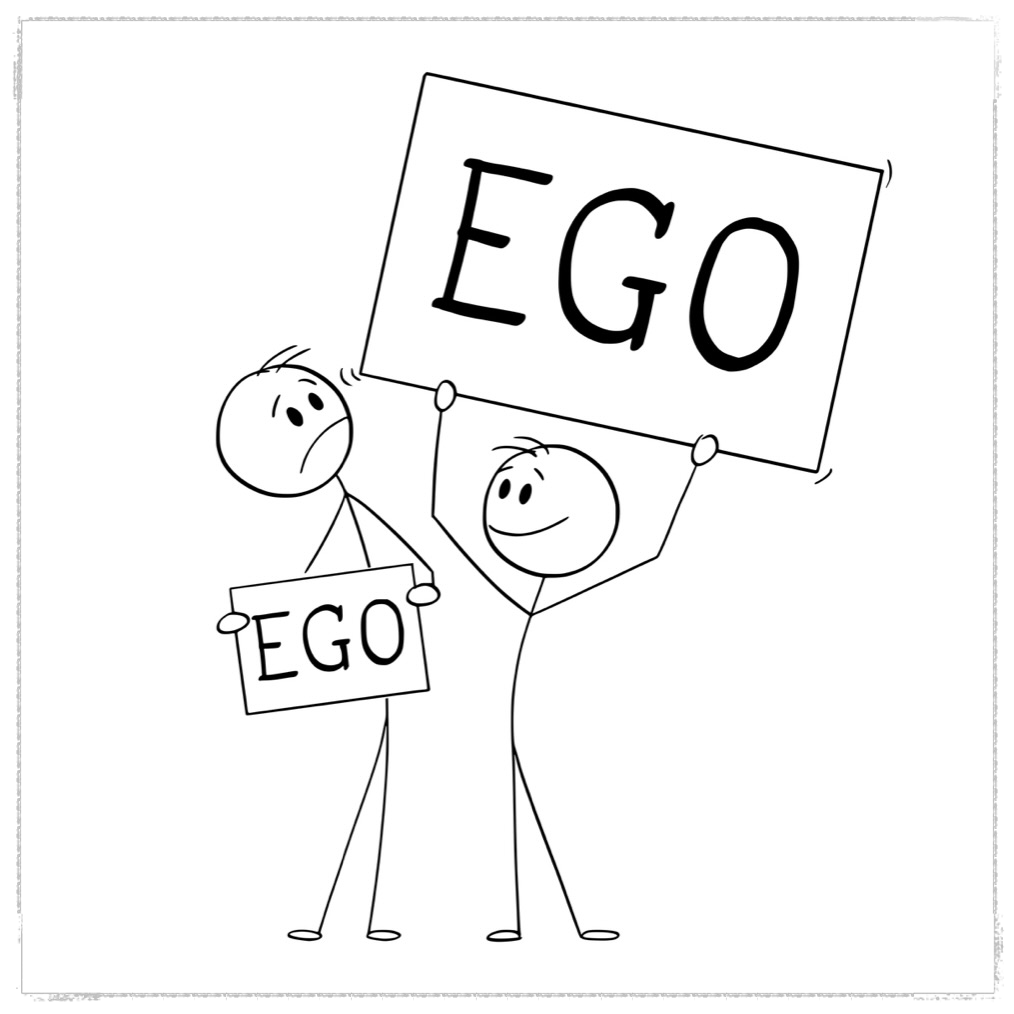 One of the things that comes up a lot in life coaching sessions, which is also something I’ve worked on extensively, is the ego.
One of the things that comes up a lot in life coaching sessions, which is also something I’ve worked on extensively, is the ego.
Depending on who you ask, the word ego can have different definitions, so I’ll share mine with you to make sure we’re on the same page. I learned this from Eckhart Tolle (The Power of Now, A New Earth), one of my teachers who is a resource I like to recommend to clients who are interested in this type of work.
OK, back to defining the ego …
I like to personify ego because, for me, it’s how I’m able to understand the different parts of the ego, and also how I can effectively share with others in a way that hopefully makes sense.
Ego is made up of more than one part, and it’s a normal part of being human — it can also get in the way, big time, of being in the present moment.
One level of ego is the part of ourselves that identifies with things like how much money we make, our marital status, if we’re happy with things like our looks, education or intelligence, as well as anything that’s a possession — something that’s outside ourselves that the ego uses to define us — like the kind of car we drive, what kind of house we live in, etc.
These all feel like fairly normal things, as it’s part of the American culture AND how our minds have been conditioned throughout our lives.
It’s all part of ego, which can be a double edged sword raising a person above others or placing a person below others. Either way, ego is still defining and judging us — and it’s a no-win situation because we’re pulled out of consciousness because of it.
On the one hand, ego can be that voice in a person’s head that tells them they’re superior to another person. That said, the flip side (or the other hand) is that little, quiet voice in a person’s head that says things to put them down, or feel less than, like: What if I’m not good enough? What if I’m not smart enough? What if I’m a fake? What if I fail? That same voice can make you feel bad about yourself (or fear others think less of you) because of your appearance, intelligence, income … whatever.
So what do we do?
The first step in quelling the ego — whether it’s boosting you up, or bringing you down — is to be aware of it. You don’t have to try to stop it, or resist it, just be aware. Awareness in these situations allows you to become an observer of the moment, and this can naturally create some space between you and your thoughts and emotions. In other words, you are not your thoughts and emotions, they are something you experience.
Want to learn more?
If you’re interested in chatting about life coaching, feel free to book a complimentary discovery call.